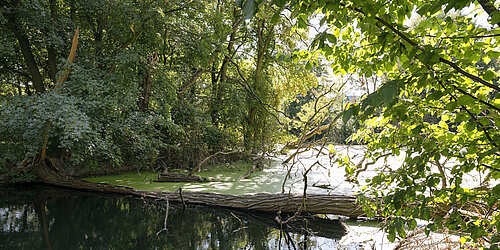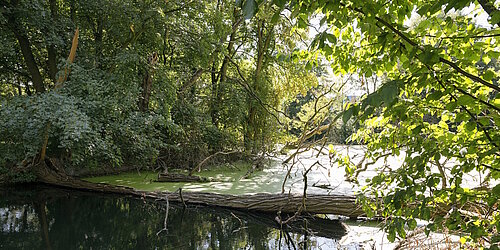Near-natural water balance
The Federal Action Plan on Nature-based Solutions for Climate and Biodiversity (ANK) provides funding for restoring rivers, lakes and wetlands in Germany to their natural state. The Centre of Competence for Nature-based Climate Action (KNK) provides advice about suitable funding programmes.
Intact rivers and lakes have a major impact on biodiversity. Together with their wetlands, watercourses provide a habitat for many plant and animal species. At the same time, wetlands filter surface water and keep it in the soil, and so help to protect against periods of drought. As catchment areas, wetlands also provide natural barriers to flooding. In urban spaces, rivers and lakes have a positive effect on the microclimate and help air circulation, for example.
The state of play for rivers, lakes and wetlands in Germany
Many rivers have been straightened and virtually cut off from their own wetlands. Furthermore, around a third of floodable land is today used as arable land or for human settlements. Only some nine percent of floodable land – itself only a third of the original extent of such areas in Germany – is now considered to be largely ecologically intact.
What action can be taken to strengthen inland waters?
The objective of promoting near-natural waters goes hand in hand with nature-based climate action. The restoration of rivers and wetlands creates sanctuaries for animals and plants alike. At the same time, the volume of water in the landscape is increased, which prevents flooding, droughts and forest fires. To protect and strengthen inland waters, the water management infrastructure must be adapted to the impacts of climate change. Capacity-building in the field of near-natural water management is also needed. The Centre of Competence for Nature-based Climate Action provides information about compatible funding programmes and supports the engagement of interested parties.

